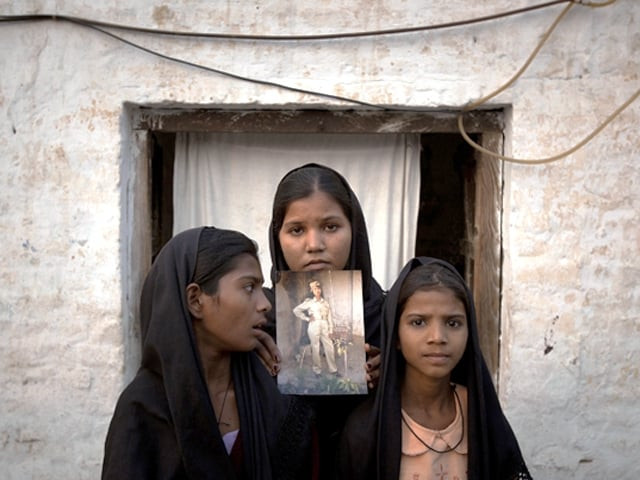Many Christians miss a ‘tolerant’ Lahore
‘We are scaring our minorities, God will not spare us’, says religious scholar Khalid Zaheer.

Many Christians miss a ‘tolerant’ Lahore
Lalaza Masih, a middle-aged Christian man who resides in east Lahore, standing outside his brick flat explained that the city’s attitude towards the Christian community had changed. “Generally, people in the community fear discussing religion with others. My neighbours and I don’t really interact much,” he said.
“The thing is we are scared that we are being watched and suddenly some allegations leading to a fatwa will materialise,” he added. Masih agreed that it was uncomfortable to live like this but on the other hand he said his attitude had ensured that he did not have any religious confrontation. He lamented that the openness the city’s Christian community once showed had now disappeared. There were only a few areas which allowed for interaction between religious communities, he said.
Anarkali resident Nasreen said that since Taseer’s death there had been a sharp change in the attitudes in her area but feelings of intolerance had been building for some time. She said many had disparaging names for Christians and members of the community employed as labourers and domestic workers were intimidated.
“I think its best for us if we just stay quiet and not make a fuss,” said Nasreen.
A pastor who spoke on condition of anonymity said the number of people who came to the church due to fear had grown. He said the church hoped for a more tolerant environment. He said many had chosen to be aloof as a strategy to deal with their fears.
“There is no doubt that the community is scared of becoming outcasts. We must move towards a more tolerant Pakistan. We have to stand united against terrorism and extremism,” the pastor said.
National Commission for Justice and Peace executive secretary Peter Jacobs said that Taseer’s killing had changed the dynamics of Lahori society. Jacobs said that the government’s reaction to Taseer’s death and the countless protests since then showed a lack of commitment to rule of law. “No suo motu action has been taken against hate speeches,” he said.He said the minorities were scared as the message sent was that hate speech and walk chalking were permissible. The police, he said, had shown no interest in curbing hate speech. The impression was that the state really had no interest in protecting its minorities, he added.
Religious scholar Dr Khalid Zaheer said, “We owe freedom of expression, tolerance and love to religious minorities. The current attitude reflects a lack of confidence in our own faith.”
Dr Zaheer said, “We cannot reason in an environment of tension. We are scaring our minorities. God will not spare us.”
Published in The Express Tribune, January 29th, 2011.



















COMMENTS
Comments are moderated and generally will be posted if they are on-topic and not abusive.
For more information, please see our Comments FAQ